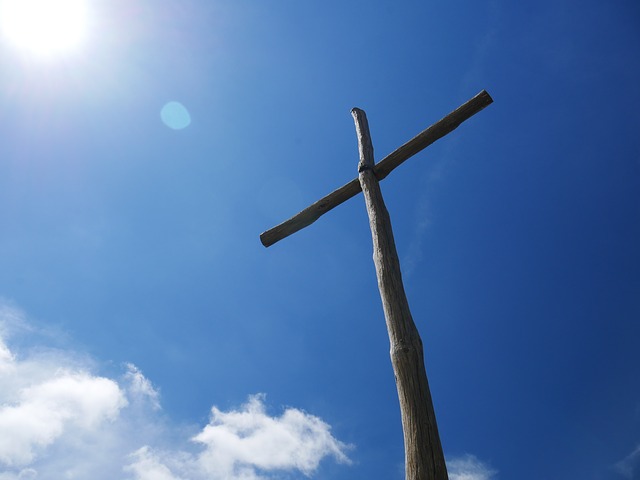
Rituals have held a significant place in human societies since time immemorial. These carefully choreographed actions, often imbued with deep symbolism and cultural significance, have been an integral part of various religious traditions across the globe. While the specific rituals and practices may differ widely, the underlying purpose remains consistent: to connect individuals with the divine, to mark important life events, and to foster a sense of belonging within a community. In this exploration, we delve into the captivating world of rituals, highlighting their diverse roles in different religious traditions.
The Universality of Rituals
Regardless of the religious tradition, rituals serve as a bridge between the physical and the spiritual realms. They offer a tangible way for believers to express their devotion, reverence, and gratitude to the divine forces they worship. From the incense-laden ceremonies of Hinduism to the silent contemplation of Buddhist meditation, rituals help practitioners transcend the mundane and connect with the transcendent.
Hinduism: A Tapestry of Rituals
Hinduism, one of the world’s oldest religions, is a tapestry woven with a myriad of rituals. From vibrant and colorful festivals like Diwali to the sacred river baths in the Ganges, rituals are deeply ingrained in Hindu culture. These rituals are often a way to honor deities, seek blessings, and celebrate the cyclical nature of life. The fire-offering ceremony, or “Havan,” is a prime example of a ritual that symbolizes the cosmic connection between humans and the universe in Hinduism.
Buddhism: The Path to Enlightenment
In contrast, Buddhism emphasizes inner transformation and personal enlightenment. Rituals in Buddhism, such as meditation, chanting, and prostration, serve as tools for self-discovery and awakening. The act of circumambulating stupas or spinning prayer wheels is believed to accumulate positive karma and purify the mind. These rituals provide a sense of mindfulness and connection to the present moment, guiding practitioners on their journey toward inner peace.
Judaism: Weaving the Fabric of Identity
Rituals in Judaism are deeply interwoven with cultural identity and historical remembrance. The observance of Shabbat, a weekly ritual of rest and reflection, fosters a sense of community and family bonding. Passover, another crucial ritual, commemorates the Exodus from Egypt and reinforces the importance of liberation and justice. Through these rituals, Judaism maintains a strong connection between past, present, and future, forging a sense of continuity and belonging among its adherents.
Christianity: Sacraments of Faith
Christian rituals, often referred to as sacraments, hold paramount importance in the faith. Baptism symbolizes spiritual rebirth and initiation into the Christian community, while the Eucharist commemorates the Last Supper and the sacrificial nature of Jesus’ death. These rituals serve as a tangible way for Christians to experience and participate in the divine mysteries, fostering a deep sense of communion with God and fellow believers.
Islam: Submission and Devotion
In Islam, rituals play a central role in the lives of Muslims, guiding them in the practice of faith and submission to Allah. The Five Pillars of Islam, including daily prayers (Salah) and the pilgrimage to Mecca (Hajj), exemplify the significance of rituals in Islam. These practices create a sense of discipline, unity, and humility among Muslims, emphasizing their devotion to Allah and the teachings of the Prophet Muhammad.

Indigenous Traditions: Harmony with Nature
Indigenous cultures around the world also place great importance on rituals that maintain harmony with nature and honor ancestral spirits. From the sacred ceremonies of Native American tribes to the rituals of Australian Aboriginal peoples, these traditions emphasize interconnectedness with the land and a deep reverence for the environment. Rituals, such as smudging or rain dances, symbolize a profound respect for the natural world and the spirits that reside within it. If you enjoyed this article about the rituals in different religious traditions then visit Bible Keeper for more interesting articles.
Conclusion
Rituals, in their multifaceted forms, serve as powerful conduits for religious expression, cultural identity, and spiritual connection. Across diverse religious traditions, rituals fulfill a fundamental human need for meaning, belonging, and transcendence. Whether in Hinduism’s vibrant festivals, Buddhism’s contemplative practices, Judaism’s historical remembrance, Christianity’s sacraments, Islam’s devotion, or indigenous traditions’ harmony with nature, rituals stand as a testament to the enduring relationship between humanity and the divine. As we continue to explore and celebrate these rich traditions, we gain a deeper appreciation for the profound role rituals play in shaping our beliefs, communities, and the very fabric of our existence.
